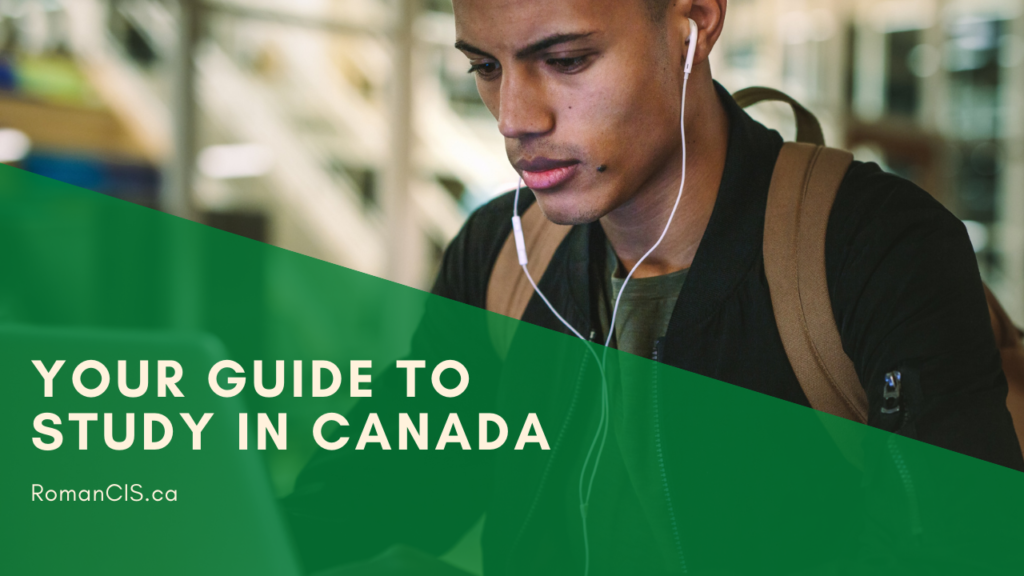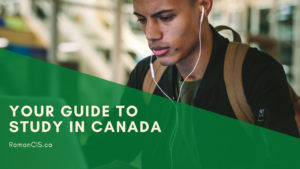Your Guide To Study In Canada
Do you want to study in Canada? We address all of your questions, such as how much it costs to study in Canada, what courses are offered, and how you may utilize your Canadian study permit to gain permanent residency in Canada.
What Are My Chances of Studying in Canada as an International Student?
Every year, the number of overseas students in Canada increases. Many of them are permitted to stay in Canada once their studies are completed.
More than 400,000 international students were admitted to Canada last year.
France, Nigeria, China, Japan, South Korea, the United States, Brazil, Iran, India, and Vietnam contributed the majority of the international students.
The Canadian government prioritizes foreign student diversity. Building on Success, a new International Education Strategy, was introduced in 2019. (IES).
The basic steps in the application procedure are as follows:
1. Select a Program: One of the most essential aspects of your study visa application is your program selection. In this program, you must make a compelling case for studying in Canada. Based on your job experience and educational background, we provide program suggestions. You will have the best chance of submitting a successful application if you do so.
2. Apply to the School: Once you’ve decided on a program, we’ll assist you in completing and submitting your application. Before you may apply for a study permit, you must obtain a letter of acceptance from a Canadian designated learning institution (DLI).
3. Apply for a Study Permit: Once you’ve received your acceptance letter, you’ll be able to apply for a study permit. We will assist you in preparing and submitting your Canadian immigration application.
Checklist for International Students
The application procedure necessitates the submission of certain documents. The following is a list that you may be asked to provide.
Acceptance Letter: A letter from the university confirming your acceptance into your chosen program of study.
Proof of Financial Support: You must show that you have enough money to support yourself and any accompanying family members. You must demonstrate that you can pay for your tuition as well as your living expenses (housing, food, etc.) during your first year in Canada.
Identity documents: Birth certificate, marriage certificate, and passport.
What is the Procedure for Obtaining a Canadian Study Permit?
Obtaining a study permit in Canada involves four steps:
1. Determine whether you are eligible: Make sure you satisfy the conditions for a study permit in Canada. You’ll need the following items:
- Letter Of Admission from a DLI,
- Proof of Financial Support
- Supporting Documents
2. Prepare your application: If you fulfill all of the qualifying conditions, you may begin preparing your application for a study permit. Make sure you have all of the documentation you’ll need for your country. An immigration officer may reject your application if you do not demonstrate that you meet the conditions. It is a good idea to have your application reviewed by a professional immigration representative before submitting it.
3. Submit your application for a study permit: When submitting your application, you have 2 options:
Submit an electronic application: On the Immigration, Refugees and Citizenship Canada (IRCC) website, create an account. You can use scanned or electronic copies of documents to submit an application electronically.
Fill out a paper application: Compile physical copies of your papers and send them to the Visa Application Centre (VAC) for your country.
4. Come to Canada if your study permit is accepted! Your Canadian study permit will not be issued until you arrive at a Canadian port of entry (POE). The Canadian government will send you a Port of Entry Introduction Letter if your permission is granted. When you arrive in Canada, you must present this letter to an immigration official in order to get your study permit.
How long does it take to apply for a study permit in Canada?
The quickest turnaround time is 1-2 weeks, however, some candidates may have to wait up to 16 weeks. The length of time it takes to process an application is determined by the number of applications received. If you apply around the start of the school year in Canada, you may experience delays.
What Are the Requirements for a Study Permit in Canada?
A study permit in Canada is subject to specific requirements and limitations. To better meet the needs of your study experience, you must adhere to these guidelines.
- You must be a student at a recognized educational institution (DLI)
- You must not take any approved absence from your program of study for more than 150 days.
What is a Designated Learning Institution (DLI)?
A designated learning institution (DLI) is any school that is allowed to admit international students.
All primary and secondary schools in Canada are DLIs and can admit students from foreign countries.
Not all post-secondary schools are DLIs, so you must check the Canadian government’s list of DLIs before applying.
Is it necessary for me to take the IELTS in order to study in Canada?
To attend a Canadian school, you must be proficient in English or French.
International students’ language skills are subject to the terms and criteria imposed by Canadian post-secondary institutions. The criteria for language skills differ from one institution to another.
You should research the qualifying requirements for your program when preparing your application. Some institutions even allow you to finish English classes once you’ve started your studies.
Some international students are exempt from providing proof of language proficiency. You may not need to take the IELTS if you are from an English-speaking nation or have studied in English.
Is a Letter of Intent to Study in Canada Required?
Your letter of intent is an important element of your application for a study permit. It should include information about your intentions to study in the country as well as your objectives. You should be aware of the requirements for obtaining a study permit in Canada.
The letter of intent’s goal is to reassure the Canadian government that you will follow the terms of your permission. When your permit expires, you must agree to leave the country.
Can I Work While Studying in Canada?
Yes! International students have the perks to work in Canada, which is another advantage of studying there. This aids in the reduction of tuition and living expenditures.
During academic years, international students in Canada can work part-time (up to 20 hours per week). International students may work full-time during specified breaks, such as summer vacation.
Working while studying does not require a work permit for most students, whether they work on or off-campus. If you’re authorized to work off-campus, it’ll be stated in your study permit.
If your program of study includes work experience, you may be able to work more than 20 hours during the semester. This will be stated in your acceptance letter. You will be given both a work permit and a study permit if the government approves this condition. You will be able to work solely on campus with this work permit.
Can I Bring My Family With Me While I Study?
Students who are married or have children may choose to bring their families with them.
Study permit applications with accompanying family members will be considered by Canadian visa officers. It’s important to keep in mind that adding family members on a study permit application might influence the visa officer’s assessment.
Your spouse will be allowed to work full time in Canada if you are recognized as a family. Any minors that accompany you will be able to study for free.
Is the Canadian Healthcare System Covered for International Students?
All international students in Canada are required to obtain health insurance.
International students can use Canada’s public healthcare system in several provinces. Students in provinces where health insurance is not provided must purchase private health insurance. International students are covered by health insurance at all Canadian schools.
Is it possible for me to stay in Canada once I graduate?
If international students desire to stay in Canada, Canada makes it simple for them to become permanent residents.
International students can stay in Canada and work for up to three years after graduation with the Post-Graduate Work Permit. International graduates may be able to seek for permanent residency after working in Canada for one year.
To apply for a PGWP, you must demonstrate that you have adhered to all of the terms of your study permit. During your stay in Canada, you must have spent the majority of your time studying.
In most cases, a PGWP is given for the same amount of time as your studies in Canada.
Interested to study in Canada? Book a free consultation with us!
You may reach us at ClientCare-PH@RomanCIS.ca



